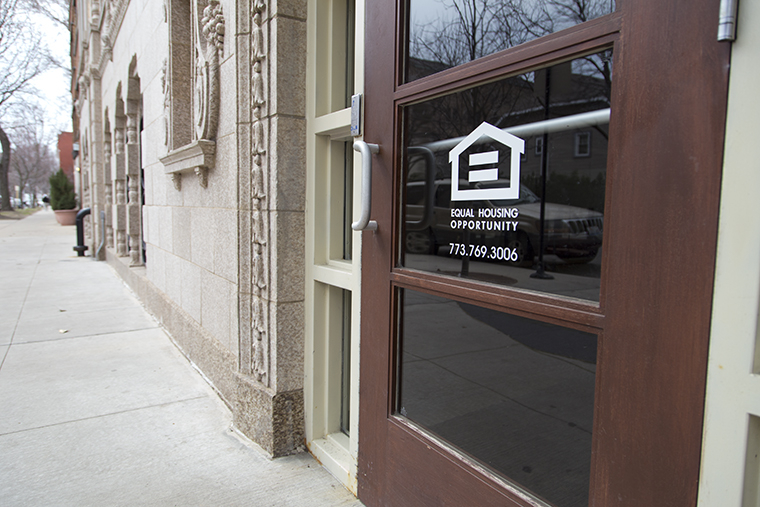Public housing program to provide second chances
The Kenmore, 5040 N. Kenmore Ave., is one of a series of Chicago Housing Authority buildings. The CHA is considering a program that would allow ex-offenders to live with family members in public housing.
April 14, 2014
To help residents with criminal records contribute to society, Mayor Rahm Emanuel is backing a pilot program that would allow a test group of ex-offenders to be re-admitted to public housing.
Emanuel and Michael Merchant, director of the Chicago Housing Authority, voiced support March 28 for the Reentry Project, contending that the CHA’s strict ban on occupants with criminal records limits their ability to find housing. Under the pilot, 30 former inmates would be permitted to move back in with family members who live in CHA housing for two years. After the provisional period, the CHA board will determine whether the program should be implemented on a larger scale, according to Charles Austin, co-chair of the Homeless Reentry Committee.
Participants would be chosen from the city’s main service providers that cater to ex-offenders: the Safer Foundation, St. Leonard’s Ministries and Lutheran Social Services of Illinois, according to a press release.
Anthony Lowery, director of Policy and Advocacy for the Safer Foundation, which works with ex-offenders to help them find employment, said to be considered for the program, ex-offenders must have excelled in one of the three groups’ programs for at least one year and prove that all their prior issues have been resolved.
The Chicago Coalition for the Homeless and the CHA are working together to launch the program. The Homeless Reentry Committee, which works with formerly incarcerated people to improve access to housing and employment, created the pilot.
The program has 125 supporters, including 14 aldermen, according to a March 28 CCH press release.
“We hope this program can be used as a model to show that with stable housing and the right kind of support from family and service providers that ex-offenders can be very successful,” said CHA community organizer Rachel Ramirez.
The CHA Board of Commissioners must approve the program before it can be implemented, but no official date has been set for a vote as of press time.
The CCH presented the idea to the CHA two years ago, but the CHA was initially unreceptive to allowing formerly incarcerated citizens to live in public housing, Ramirez said.
“The Chicago Housing Authority was slow-going, but change in general is slow-going, so we were prepared for the long haul,” Ramirez said.
As of press time, the CHA has not returned requests for comment.
Ramirez said former housing authority CEO Charles Woodyard supported the program, but when he resigned Nov. 1, the Homeless Reentry Committee was worried that the project was in jeopardy, prompting them to seek Emanuel’s support, Ramirez said.
Lowery said the pilot would likely not exist without the mayor’s public support.
Chris Roach, intake coordinator and a former resident of St. Leonard’s Ministries, said most people are hesitant to give ex-inmates a second chance, but doing so would allow them the chance to make positive contributions to society.
“Society would rather spend tax dollars on security than to help the person conquer their troubles,” Roach said.
Austin said a stable home would help people with criminal records get on the right path.
“You can’t rebuild your life when you’re constantly worried [about] where you’re going to lay your head from night to night,” Austin said.
The committee has yet to work with Merchant’s staff, but they are in communication, Ramirez said, adding that she would like to see the CHA eliminate “blanket restrictions” for certain ex-offenders.
“We are confident that the pilot will be successful and that the 30 people are going to go back to the neighborhoods [and] set excellent examples for people around them who are also struggling,” she said.








